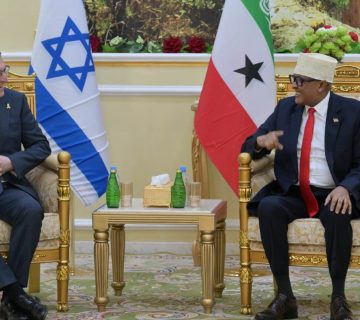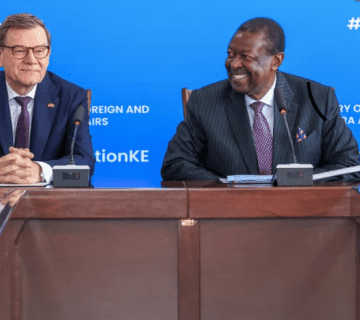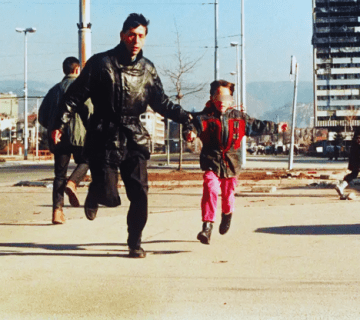The Ethiopian government’s May 6, 2021 designation of Tigray’s People’s Liberation Front (TPLF) as a ‘terrorist’ group for targeting civilians and public infrastructure – to protect and secure civilians – has increased political turbulence in Tigray State and Ethiopia. There are no guarantees this will end the Tigray conflict, or reduce the suffering of civilians caught in the crossfire between TPLF and Ethiopian National Defense Force (ENDF). African Union-mediated negotiations between the Ethiopian government and TPLF should be pursued urgently and aggressively to prevent further humanitarian disasters, ease ethno-political tensions, and de-escalate and end the conflict.
The Evolution of TPLF
In about three years, TPLF has evolved from being the most dominant political party in the Tigray-based Ethiopia’s People’s Revolutionary Democratic Front (EPRDF) formation, to a minority political actor in Ethiopia’s national politics, and, now, a ‘terrorist’ organization. This changing identity has placed TPLF on a collision path with Prime Minister Ahmed Abiy’s administration. TPLF blames PM Abiy’s reforms for the decline of its relative influence in Ethiopia’s politics.
Ethiopia, the largest and most populated country in the Horn of Africa region, is an ethicized federal nation-state. The Oromo and Amhara are the largest ethnic groups among 110,871,031 people. The Tigray constitute about seven per cent of the population. For years, TPLF was one of EPRDF’s long-standing members, alongside Amhara National Democratic Movement (ANDM), Oromo People’s Democratic Organization (OPDO), and Southern Ethiopian People’s Democratic Movement (SEPDM). OPDO is one of several Oromo parties, alongside Oromo Liberation Front (OLF) and Oromo Federalist Congress (OFC). PM Abiy assumed power in April 2018 following the resignation of his predecessor, PM Haile Mariam Desalegn, in February 2018. Abiy, who was the leader of OPDO, accelerated Haile’s political reforms in 2018 and 2019, expanding EPRDF’s membership to nine under the umbrella of the newly formed Ethiopian Prosperity Party (EPP). EPP’s membership now includes ruling parties of Afar, Gambella, Benishangul-Gumuz, Hareri, and Somali regions. TPLF, which had dominated politics for at least 17 years before, resented the reforms, refused to join EPP, and begun pursuing separatist policies.
On September 8, 2020, TPLF defied government’s COVID-19-related directive to delay elections, and held regional elections whose outcome the government does not recognize. On November 4, 2020, the now heightened tensions escalated into armed conflict when ENDF responded to a TPLF attack of the Northern Command (a government military installation in Tigray region). Humanitarian agencies have reported the deaths of hundreds of civilians, and displacement of thousands others.
Political (In)Correctness
TPLF’s ‘terrorist’ designation, issued through a statement from Abiy’s office, comes alongside that of OLF-Shene following a Council of Ministers approval on May 1, 2021. TPLF, a battle-hardened and militarily experienced armed group, challenges Abiy’s reforms in general, while OLF-Shene, a militant OLF splinter group, is opposed to EPP. A military operation has been underway in the Oromia region for several months. Arguably, it is politically incorrect to list political opponents as ‘terrorist’ organizations – particularly when this is associated with Abiy’s administration – it tarnishes Abiy’s rights-oriented credentials. However, this is understandable as TPLF is not a typical insurgent group, but a militarily equipped and experienced ex-government organization that is active in a region of strategic importance to Ethiopia’s national security. Military installations other than the Northern Command are located in Tigray State. In the same breath, it politically correct to declare the two groups as ‘terrorist’ concurrently. Doing so conveniently communicates the agency in enforcing the rule of law and quelling the conflicts in Tigray and Oromia that are increasing insecurity, disenfranchising citizens, and derailing Abiy’s reform and development agenda. It also highlights the presence of militant groups associated with the Tigray (the once powerful and dominant minority group) and Oromo (the once marginalized majority group; Abiy has Oromo-Amhara heritage), and demonstrates fairness.
Securitizing the Tigray conflict is a risky but necessary national security strategy. On the one hand – and the jury on the effectiveness of the strategy is still out – allowing TPLF fighters to “operate as terrorists … or lead destructive activities on the nation” unabated, for the said reasons, is nonsensical. Abiy said in November 2020 , according to Al Jazeera, that inaction in Tigray region would “nurture a culture of impunity with devastating cost to the survival of the country.” On the other hand, the ‘terrorist’ label adds to TPLF’s lists of anti-government grievances such as ethnic targeting, and atrocities linked to ENDF-TPLF combat. TPLF will likely launch retaliatory attacks to show its supporters and sympathizers that this listing does not intimidate it. More civilians will be displaced, killed, or injured in the process. This will undermine the goal of “protecting and securing Ethiopia’s citizens.”
De-Escalating Tigray Conflict
Tagging TPLF as a threat to Ethiopia’s national security is drastic. However, previous efforts to end the conflict militarily or non-violently have not had any tangible impact. In November 2020, for example, TPLF rejected Abiy’s call to surrender. African Union (AU) envoys such as former presidents of Liberia (Ellen Johnson Sirleaf), Mozambique (Joaquim Chissano), and South Africa Kgalema Motlanthe offered to facilitate dialogue between ENDF and TPLF. However, Abiy, alluding to his non-recognition of Tigray region’s leadership, said he would not dialogue with TPLF representatives “operating illegally.” If nothing drastic is done to de-escalate and stop this conflict, security in the Tigray region and Ethiopia will deteriorate, the humanitarian situation will worsen, and Ethiopia’s development will slow down further.
A one-on-one consultative meeting between Abiy and AU Chairman, Felix Tshisekedi, on containing insurgencies by armed groups and ‘terrorist’ activity in strategic locations, and multiple sites within a country will serve Abiy well. It should be encouraged, facilitated, and complemented with AU-mediated negotiations between the Ethiopian government and TPLF. Africa’s United Nations Security Council (UNSC) representatives should also throw their weight behind Ethiopia’s conflict resolution efforts to prevent further humanitarian disasters, ease ethno-political tensions, and de-escalate and end the conflict.
Roselyne Omondi is Associate Director, Research, the HORN Institute.
Photo: An animated photo of Abiy Ahmed Ali (Photo Credit: Niklas Elmehed)



